DISCLAIMER: Always consult with a healthcare professional before starting any new routines, programs, or nutrition plans to ensure you receive the best medical advice and strategy for your specific individual needs.
Perimenopause is marked by intense hormonal fluctuations that can cause considerable distress. You may experience a combination of symptoms such as hot flashes, early awakenings, irritability, lack of energy, and anxiety. This is a vulnerable period for gaining weight and losing muscle mass, and it’s no picnic, you may agree. Yet, what you put on your plate (and in your mouth) can have a huge impact on how you experience symptoms and on your risk factors for a variety of health conditions.
A targeted diet that includes whole grains, low-fat fish and low-fat meat, dairy, and plenty of fruit and vegetables will supply the needed nutrients to protect your vital tissues and organs. Limiting items like sugar, alcohol, nicotine, and caffeine can make a huge difference in how you feel and help you to stay healthy during menopause and beyond.
Why is Diet Important During Menopause and Perimenopause?

Diet is important during perimenopause and menopause for a number of reasons. Hormonal fluctuations can lead to certain mineral and vitamin deficiencies, including vitamins B and D, calcium, zinc, and magnesium. As estrogen levels start to fluctuate and drop, the risk for osteoporosis and fractures increases, and vitamin D and calcium deficiency can contribute to poor bone health.
Declining levels of estrogen also lead to decreases in muscle mass, and a lack of protein can lead to a further loss of muscle strength and mass. As the metabolism changes, an ingredient like fiber is another item you want to be tracking for optimal menopausal nutrition. It’s common for women to develop constipation, which weakens the pelvic floor organs and can lead to prolapse. Beyond pelvic floor health, fiber deficiency can increase your risk for all sorts of health conditions, from diabetes and heart disease to hemorrhoids and bowel cancer.
What Foods Naturally Help Menopausal Symptoms?
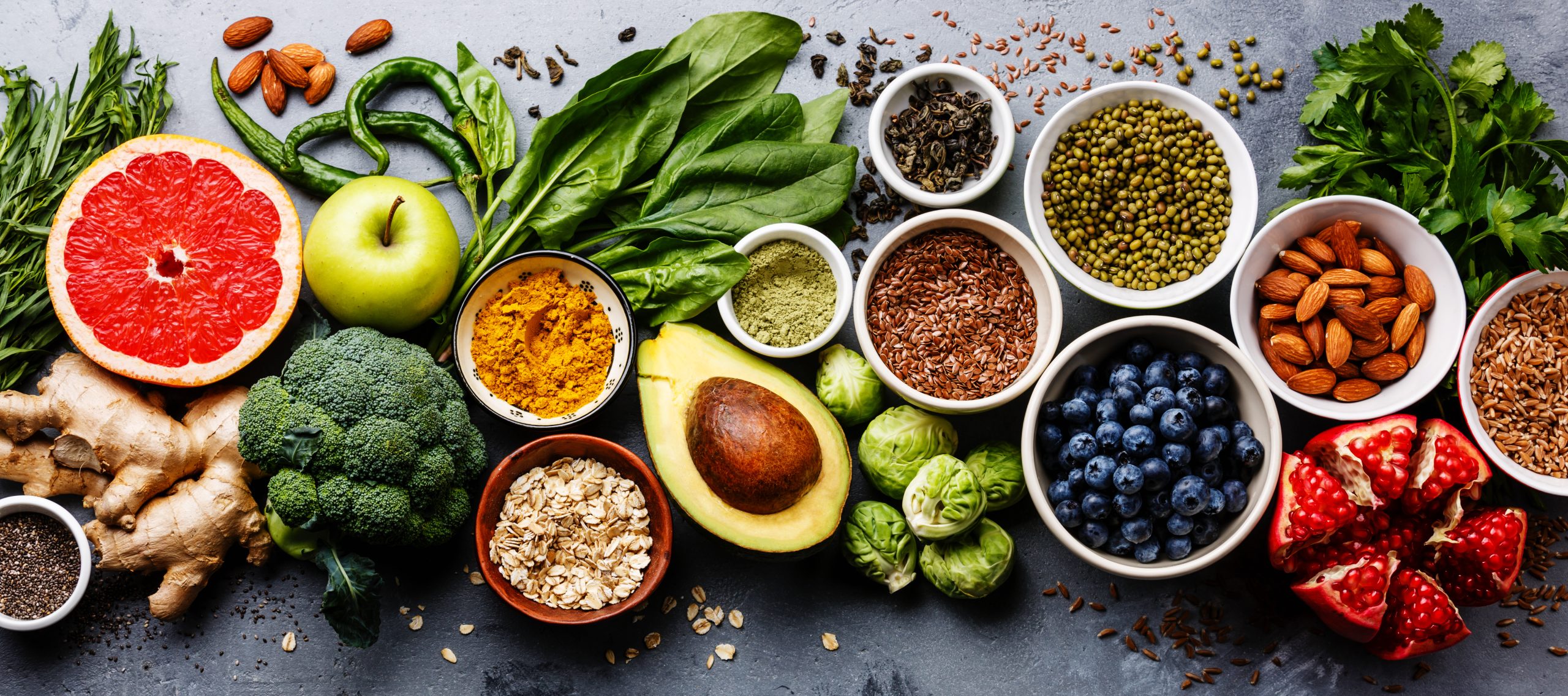
Here are a few types of food that should help you with menopausal symptoms
Fruits & Vegetables
Adding color to your plate supplies your body with essential antioxidants, minerals, vitamins, and fiber. The more shades of green, yellow, and orange you add, the more nutrients you are getting. Dark leafy greens such as celery, romaine lettuce, and spinach are not only loaded with antioxidants that mitigate menopausal symptoms but help reduce the risk for cardiovascular disease which goes up when your ovaries slow down.
Bright-colored fruits and vegetables like tomatoes, bell peppers, and grapefruit are high in carotenoids which have been shown to prevent bone loss and reduce the risk for inflammatory bowel disease and breast and ovarian cancer (Nutritional Neuroscience).
Onions & Garlic
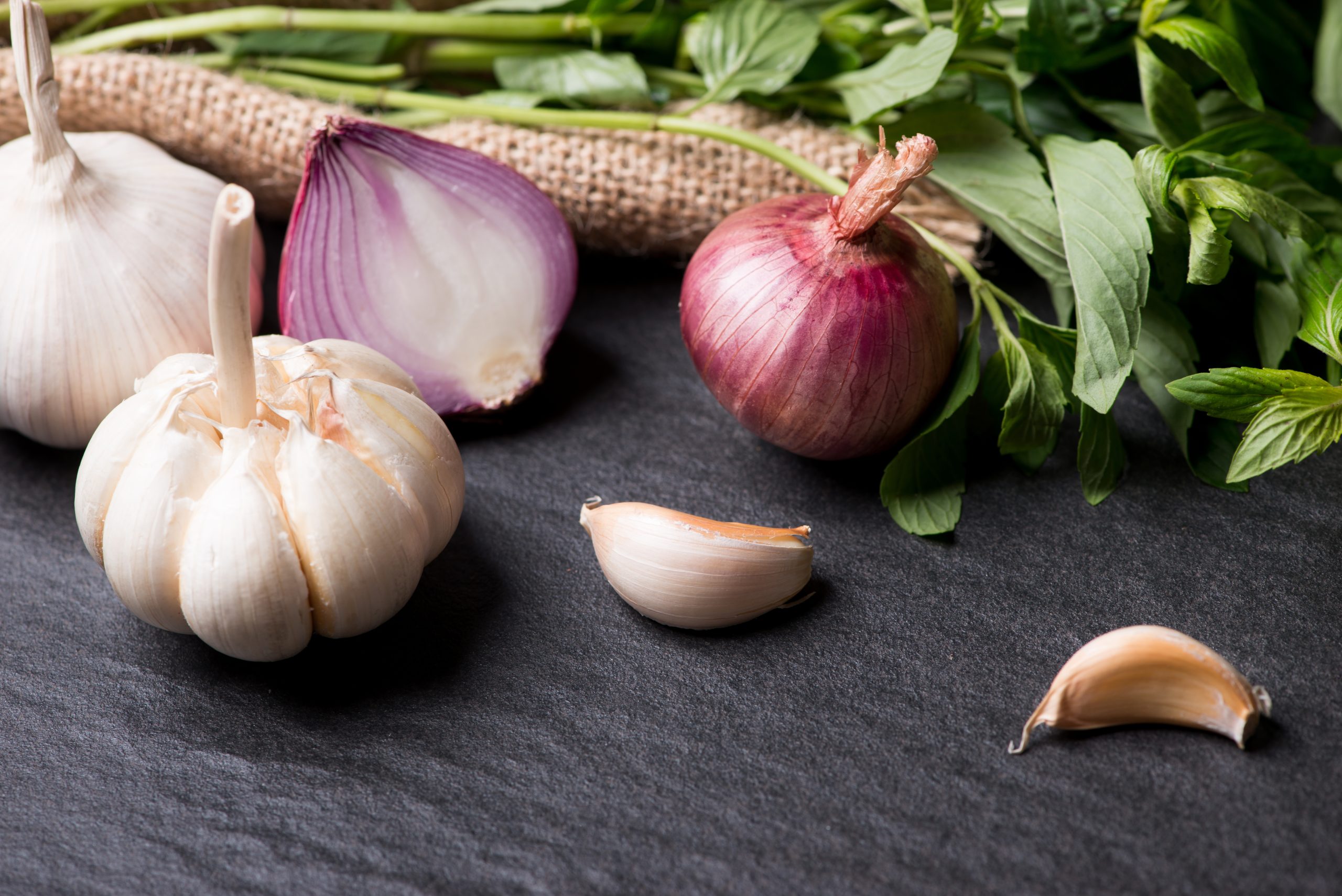
Menopause is associated with lower levels of antioxidants in the blood and an increase in oxidative stress. The consumption of garlic extracts, along with crude black seeds, has been found to have a beneficial effect on both antioxidant enzyme activity and oxidative stress in menopausal women (SAGE Open Medicine).
Likewise, research has shown that regular onion consumption improves antioxidant activities and contributes to increased bone density during perimenopause and menopause.
Dairy
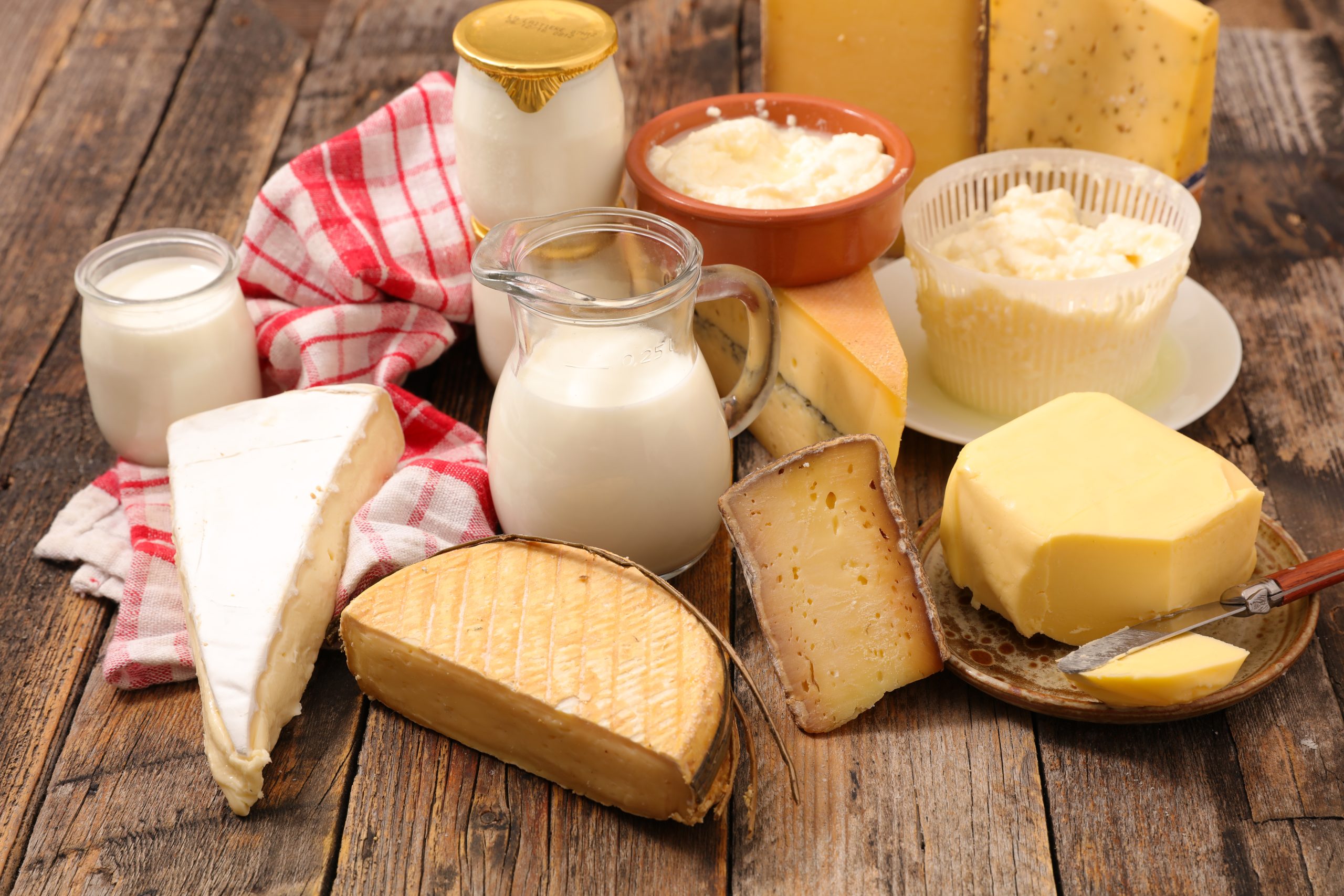
Dairy products are an excellent source of B vitamins, magnesium, calcium, and protein which are essential for bone health. Regular consumption of dairy also positively affects menopausal symptoms, including psychological and somatic (tiredness, dizziness, etc.).
In fact, a large-scale study in Spain established that low dairy consumption and calcium intake are associated with more severe menopausal symptoms, including irritability, insomnia, and hot flashes. Some evidence also suggests that a higher intake of calcium and vitamin D, which dairy products are rich in, lowers the risk of early menopause by 17 percent.
Fish
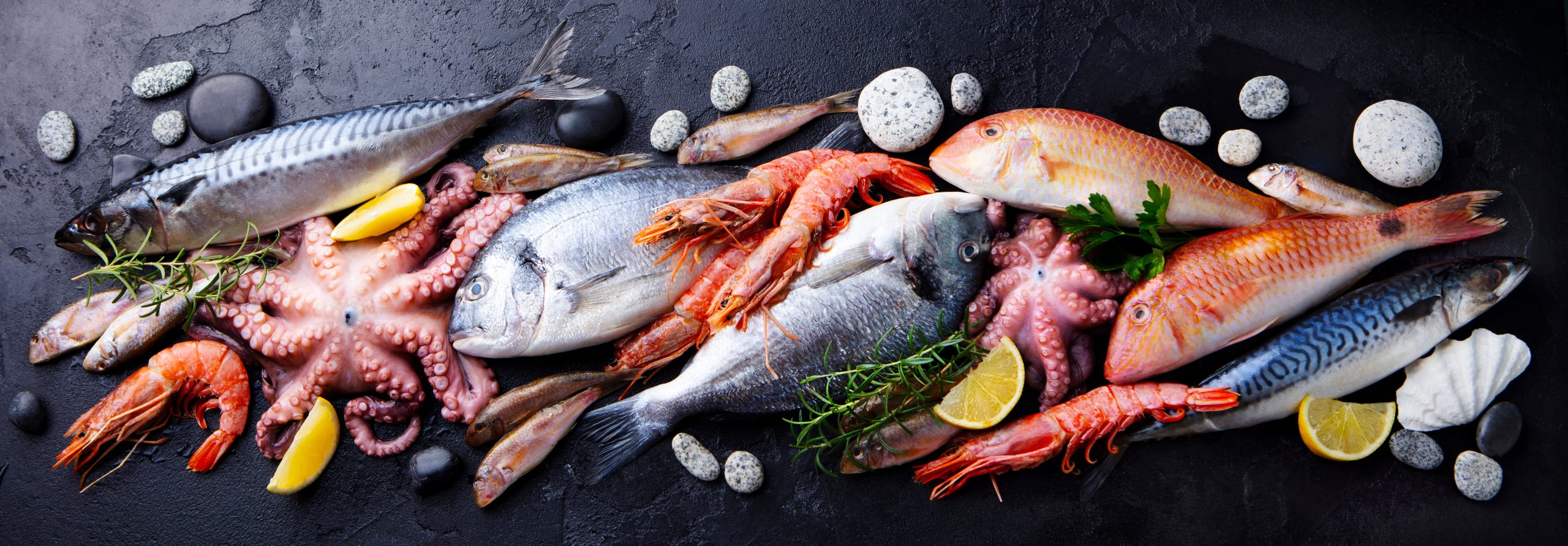
A diet rich in oily fish, which is a source of omega-3 fatty acids, can help delay menopause by 3 years, a recent study found. Oily fish such as mackerel, trout, and salmon are also high in zinc which is also linked with a later stage of menopause.
In addition to helping delay the onset of menopause, omega-3 fatty acids have been found to alleviate night sweats in menopausal women. Omega-3 also helps regulate blood pressure, supports heart health, boosts immunity, and reduces inflammation.
Whole Grains
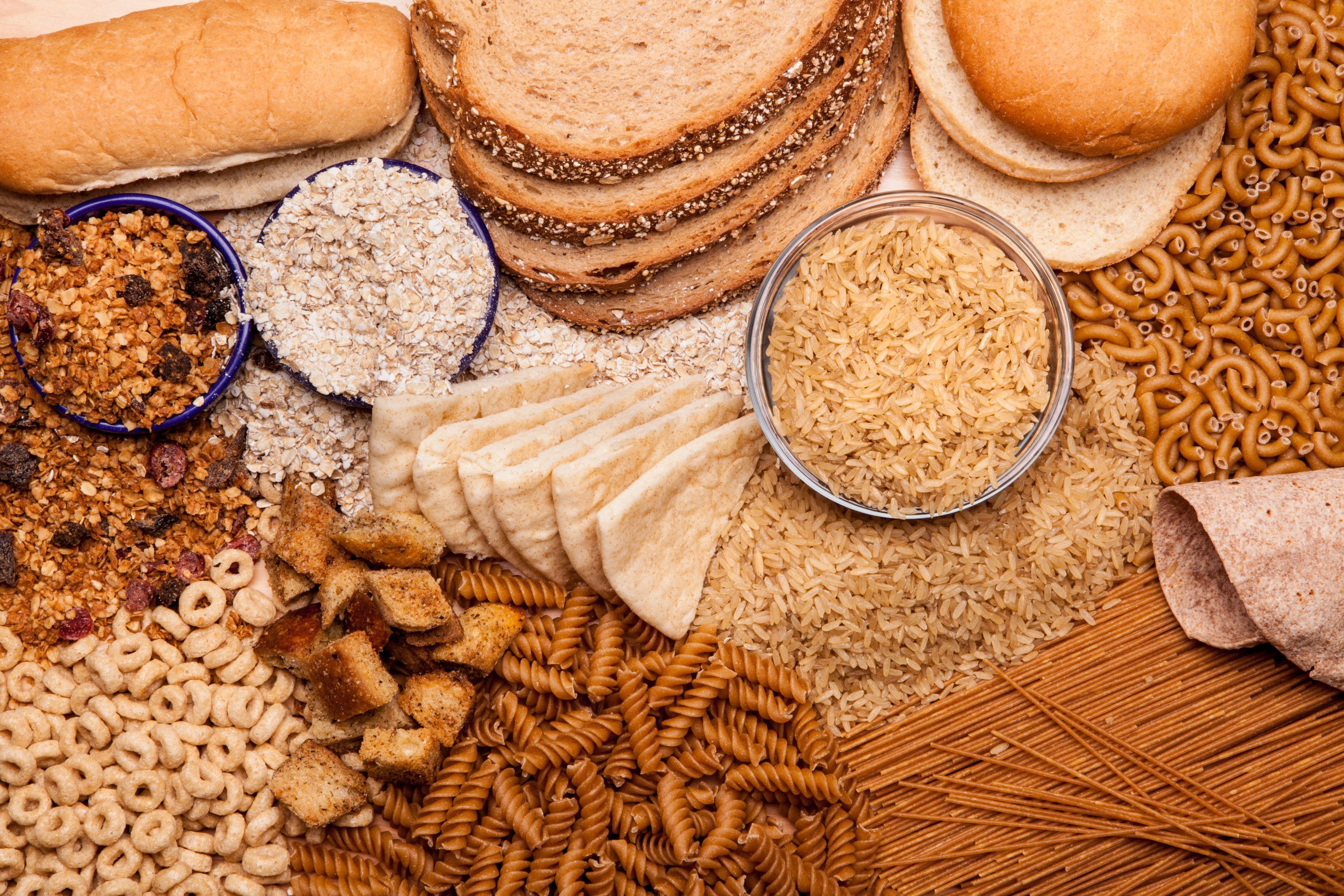
Past their 40s, women are at a higher risk of developing diabetes and heart disease. Yet, a menopause diet high in wholewheat bread and wholegrain can help reduce the risk of type 2 diabetes and cardiovascular diseases by 20 – 30 percent (Public Health Nutrition).
A study with 11,040 participants also found that menopausal women who consumed more whole grains (4.7 grams per 2,000 calories) had a 17 percent lower risk of early death than women who only had 1.3 grams per 2,000 calories.
Low Fat Protein
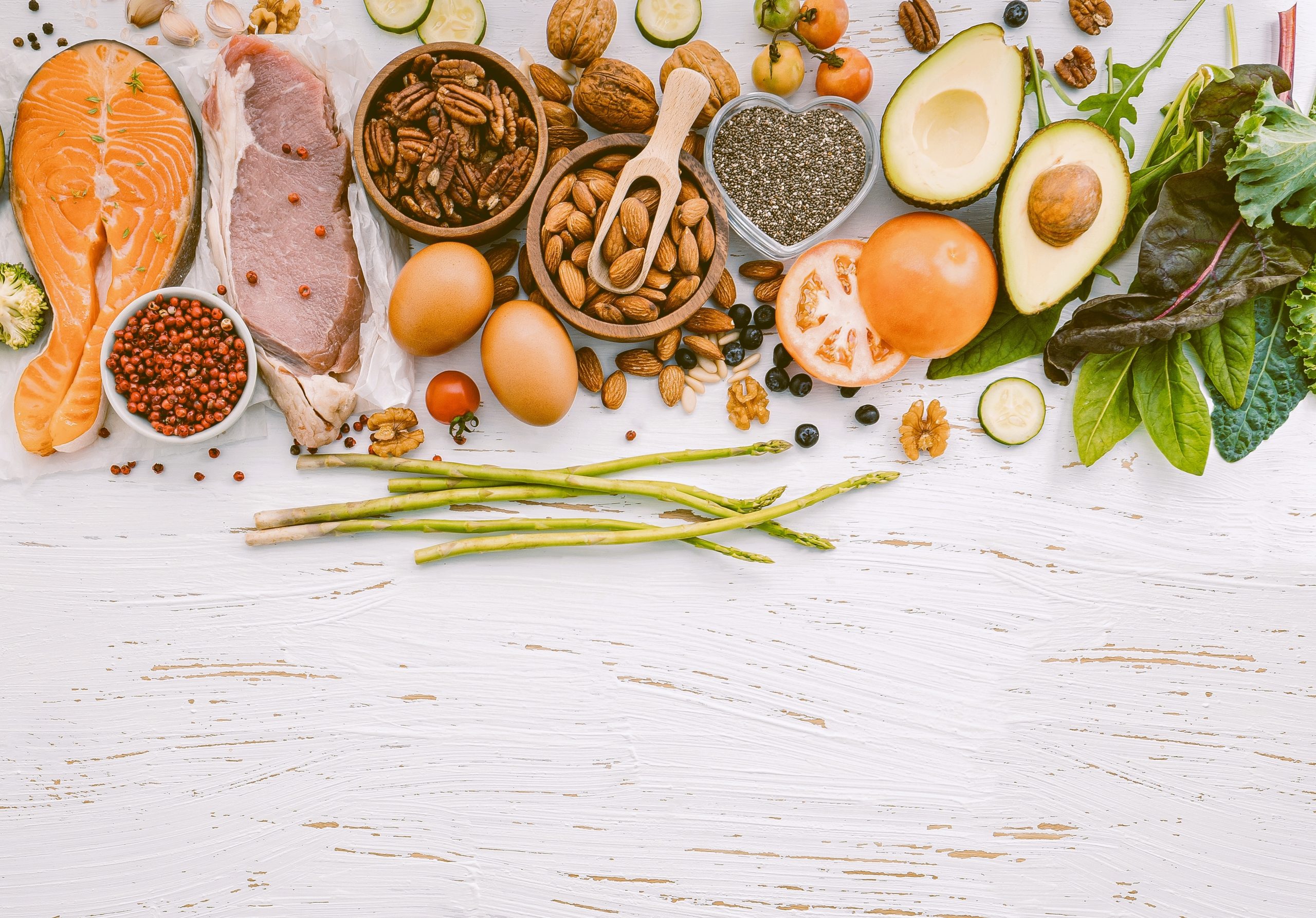
Eating leaner meats such as beef, turkey, and chicken not only helps the body hang on to muscle mass but reduces the risk of being overweight and developing heart disease. Lean meat is also a rich source of vitamin B which helps fight anxiety and depression in menopausal and perimenopausal women.
Good sources of lean protein include:
– Prime and choice cuts of beef
– Flat-iron steak
– Beef sirloin
– Pork or beef with a label “round” or “loin”
– Wild game
– Lean ground chicken and turkey
– Skinless turkey and chicken
Foods Containing Vitamin E
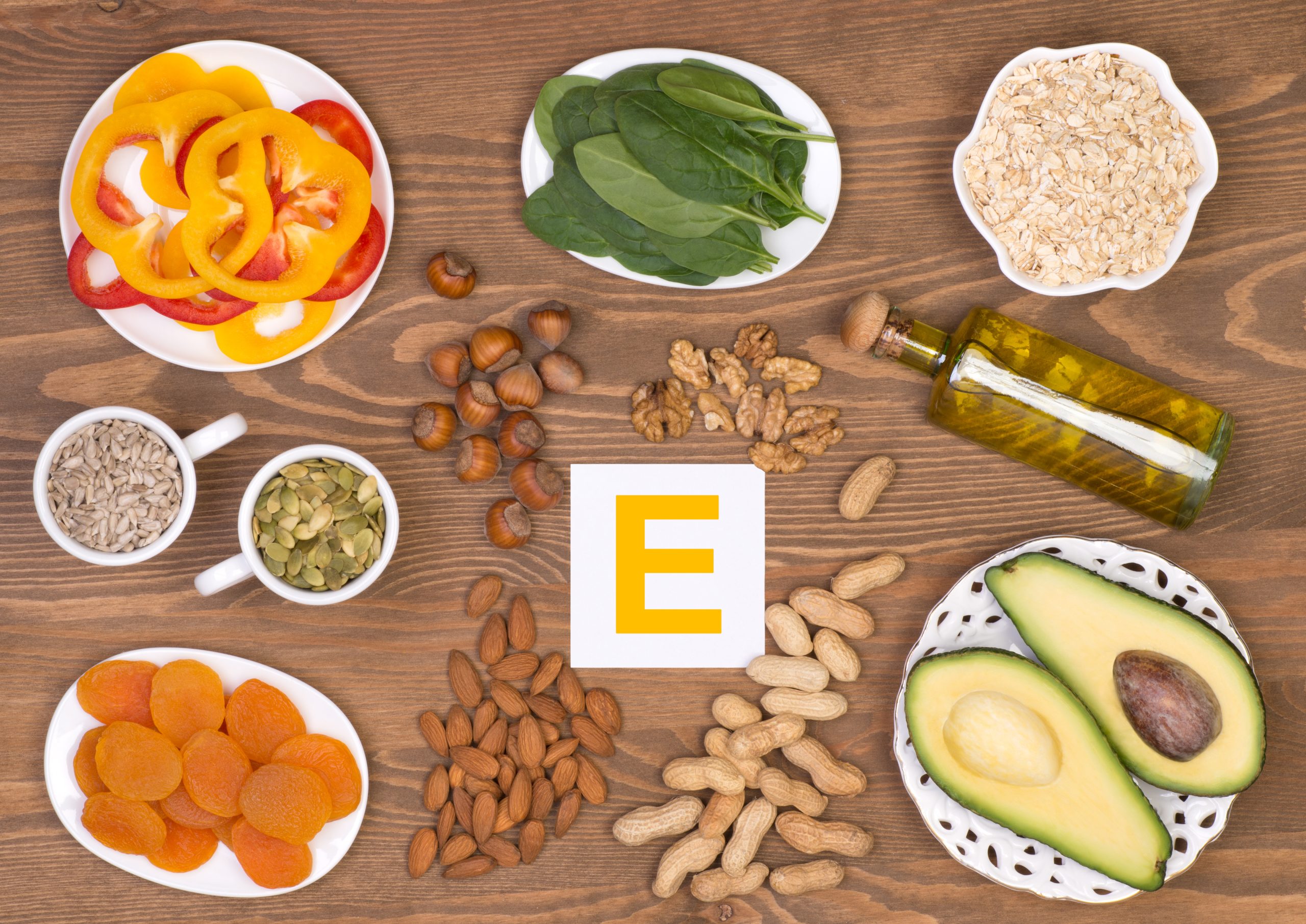
Vitamin E has been shown to alleviate the severity of hot flashes in menopausal women. The results of а recent study also suggest that vitamin E supplementation is effective in reducing the incidence of hot flashes by 30 percent. In addition, vitamin E has been found to have a positive effect on heart and liver health.
To increase vitamin E, good sources can be:
– Sunflower seeds
– Avocado
– Almonds
– Wheat germ
– Pumpkin
Foods with a High Boron Content
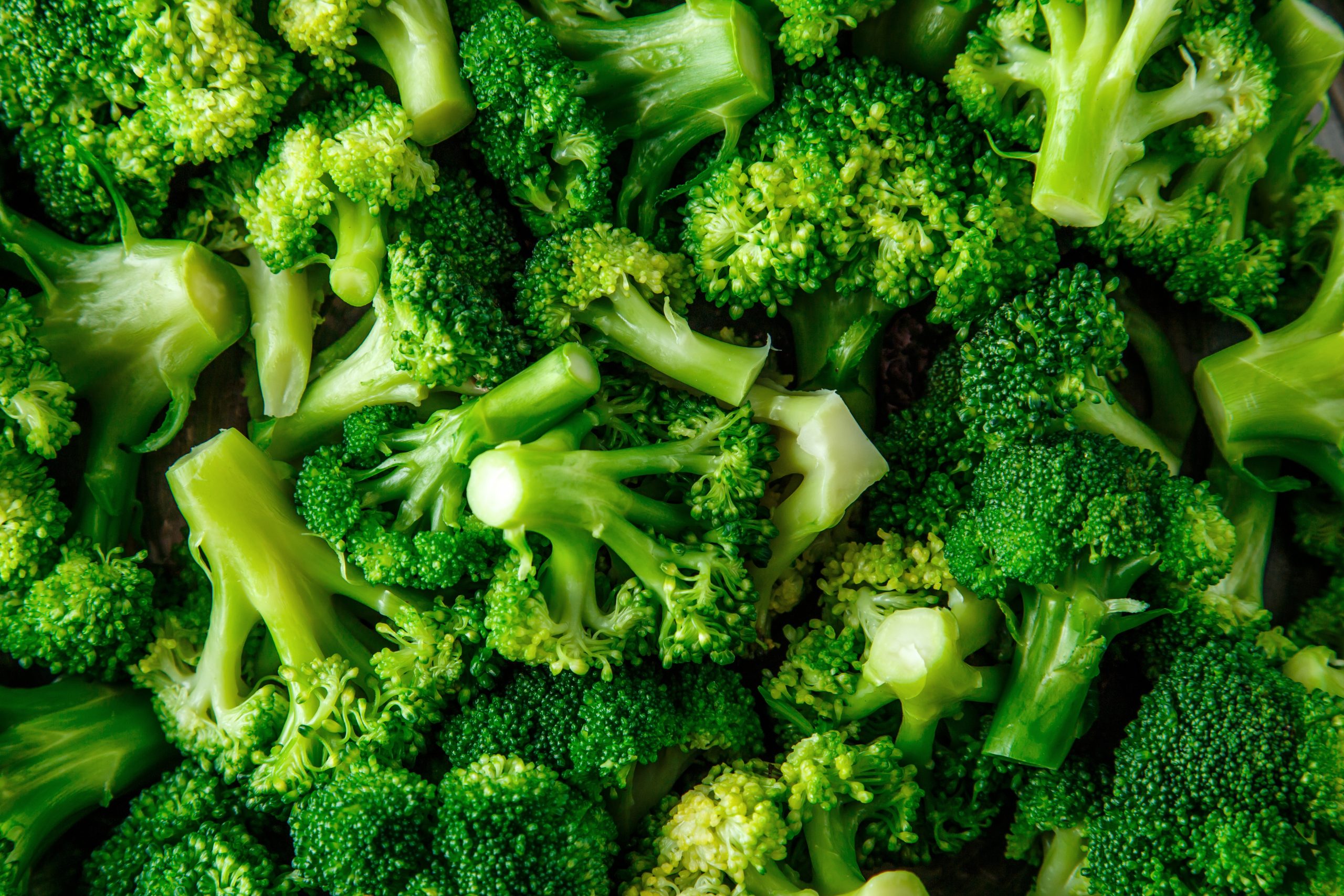
Boron is known to benefit bone density and health during menopause. Boron in vegetables and fruits has been shown to prevent the loss of bone mineral density which occurs due to a drop in estrogen levels. Boron also helps with vitamin D absorption, reduces inflammation, and supports joint health.
Instead of supplementation, boron intake can be increased by consuming more:
– Avocado
– Beans
– Apples
– Broccoli
– Peanuts
– Raisins
Foods Containing Magnesium
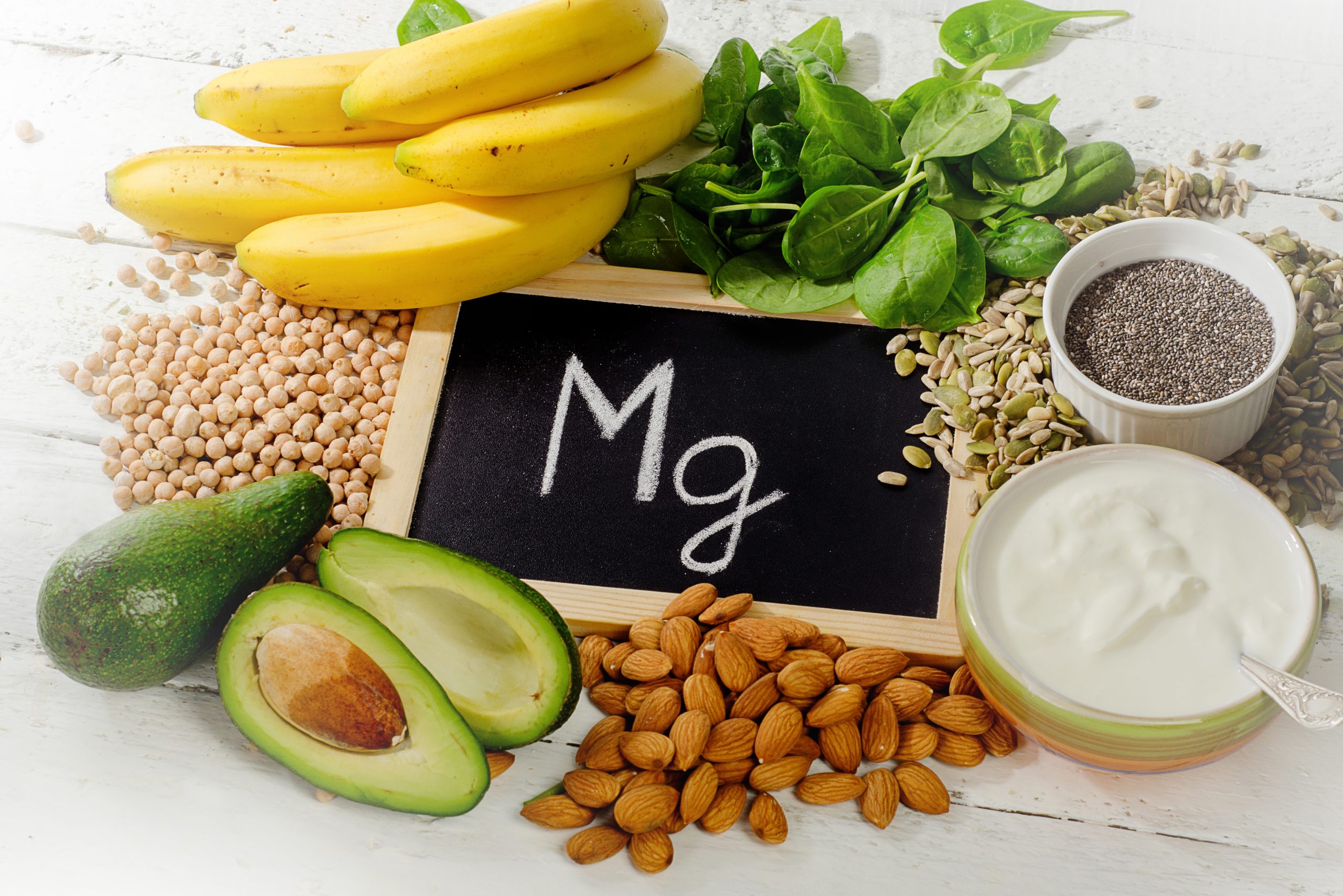
Offering a range of health benefits during all stages of life, magnesium supports the bone, nerve, and heart function regulates insulin and glucose metabolism, and aids energy metabolism. During menopause, magnesium can help with symptoms like anxiety, depression, and difficulty sleeping.
One study involving menopausal women, for example, found that participants with a low blood level of magnesium had more severe symptoms of depression than those with higher serum levels.
While no direct link between menopause and magnesium deficiency has been proven, the incidence of deficiency ranges from 2.5 to 15 percent in women. This is mainly due to unbalanced dietary patterns low in fruit and vegetables and high in processed foods (NFS Journal).
Fortunately, magnesium is easy to incorporate into a healthy menopausal diet as it is found in a wide variety of foods, including:
– Almonds
– Leafy greens
– Broccoli
– Dark chocolate
Foods Containing Potassium
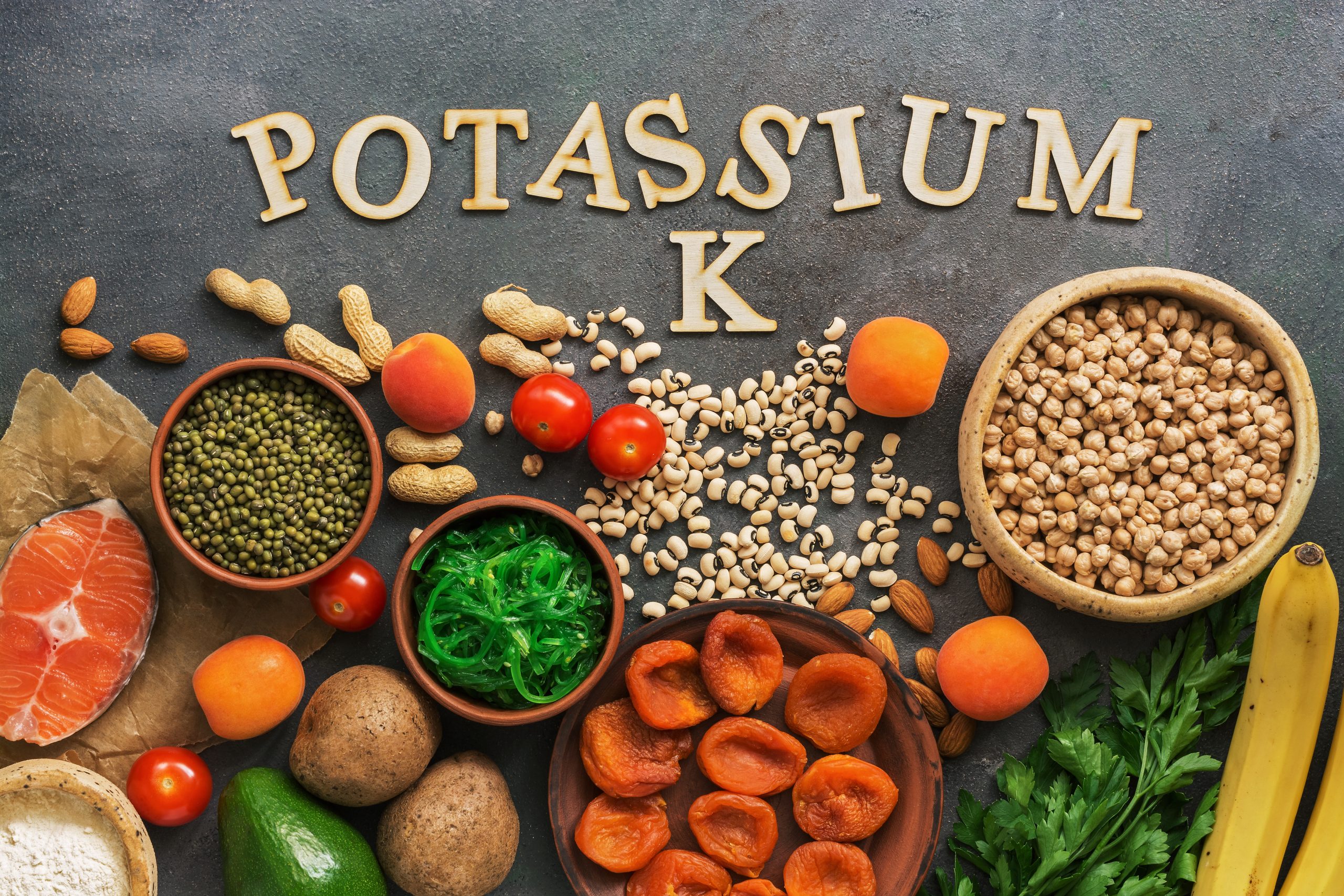 While stroke incidence is lower in women, transitioning to menopause is when estrogen levels drop and increase the risk for stroke. High blood pressure is one risk factor for stroke which you can change by consuming foods rich in potassium. In fact, researchers at the Albert Einstein College of Medicine have found that women on a high-potassium diet have a 12 percent lower incidence of stroke than those who eat the least potassium.
While stroke incidence is lower in women, transitioning to menopause is when estrogen levels drop and increase the risk for stroke. High blood pressure is one risk factor for stroke which you can change by consuming foods rich in potassium. In fact, researchers at the Albert Einstein College of Medicine have found that women on a high-potassium diet have a 12 percent lower incidence of stroke than those who eat the least potassium.
The findings suggest that the menopause transition is the time to consume more potassium-rich foods, including:
– Beet greens
– Beans
– Bananas, and
– Potatoes
What Foods to Avoid During Menopause?
One mistake that some women make is giving many foods (or entire groups) the boot in an attempt to lose weight. Yet, an unbalanced diet can lead to a wide range of health problems such as diabetes, high blood pressure, and heart disease.
There are some foods that best be avoided, like smoked meats and fried foods, but the key to good health is eating a varied diet with foods across all groups.
Fast Food

Fast food may taste good but it often contains massive amounts of saturated fat and salt. Saturated fat increases the risk for heart disease while salt raises blood pressure both of which menopausal women are already at risk for. Truly, fast-food chains can be convenient when we are low on energy and short on time but there can be a better solution. If you have to eat a meal while on the move, egg bites or a grilled chicken sandwich are healthier options.
Sugary Foods

Menopause and sugary foods do not go well. Sweets cause blood sugar to rise which can trigger hot flashes. Besides, eating too much sugar can increase your risk for type 2 diabetes, heart disease, and depression. While it can be hard to give up sugar, if you look around, you will find healthier and safer alternatives to satisfy your sweet tooth. Greek yogurt, dried fruits, chia pudding, and baked apples or pears are all good alternatives.
Alcohol

While you don’t have to cut out alcohol necessarily, there are good reasons to cut back. Alcohol can exacerbate symptoms of anxiety and depression and affect the quality of your sleep. Plus, women who drink regularly are more likely to experience night sweats and hot flashes, studies suggest. So, if you still want to indulge, this is fine as long as you limit yourself to an occasional drink to celebrate or socialize.
Smoked Meats & High Fat “Red” Meats

High-fat meats contain a lot of saturated fat which can cause a wide range of health issues, including heart disease and stroke.
So, skip or reduce:
– Sausage
– Bacon
– Fast Food Burgers, in favor of healthier options like turkey and chicken
Some Hot & Spicy Dishes

Think twice before you order a spicy chicken sandwich or burrito with extra-hot salsa. Spicy foods contain a compound known as capsaicin which can cause the body to sweat abruptly. So, if you are already dealing with annoying night sweats and hot flashes, you may want to cut back on spicy foods and make use of basil, curry, or cumin to add flavor to your meals.
Caffeine

Can’t start the day without your morning coffee? It can make your menopause symptoms worse. Evidence from a survey of 2,507 women shows that caffeine use is associated with both night sweats and hot flashes. Menopausal women who drink coffee are more likely to suffer worse symptoms than those who don’t consume caffeine. So, if hot flashes keep you up at night but you are literally unable to function without coffee, consume them in moderation.
Wrapping Up

Perimenopause and menopause make your body go through many changes, making it age faster. The perimenopausal transition can bring night sweats, hot flashes, irritability and mood swings, sleep problems, and anxiety and depression. Hormonal fluctuations also affect cholesterol production, blood sugar control, and calcium absorption in your body.
The changes your body goes through contribute to an increased risk of cardiovascular disease, overweight, type 2 diabetes, and osteoporosis, and may require some lifestyle modifications to stay healthy.
Changes in your diet, in particular, can help counteract metabolic upsets and alleviate symptoms. A balanced menopause diet high in lean protein, fruits and vegetables, low-fat dairy and fish, and wholegrain foods can help reduce long-term health risks and make menopause symptoms less severe and easier to manage.
DISCLAIMER: Always consult with a healthcare professional before starting any new routines, programs, or nutrition plans to ensure you receive the best medical advice and strategy for your specific individual needs.


 By Team THOR
By Team THOR
